RENOVATION TIMES AHEAD
Plan for time and cost
by TurfPro Editor, Laurence Gale MSC, MBPR
Clubs need to recognise their annual renovation costs and ensure they can find the funds to properly see through these essential works.
l thoroughly enjoyed this year’s inaugural The Hundred cricket competition.
With the finals being played at Lord’s, the format of the competition appeared well received by all clubs involved and I firmly believe it delivered the outcomes the ECB and the clubs have been striving for in terms of introducing the game to new audiences. Most games were well supported, with good crowds enjoying this new format of cricket. It will be interesting to see how many new, young players start taking up the sport as a consequence of this new format.
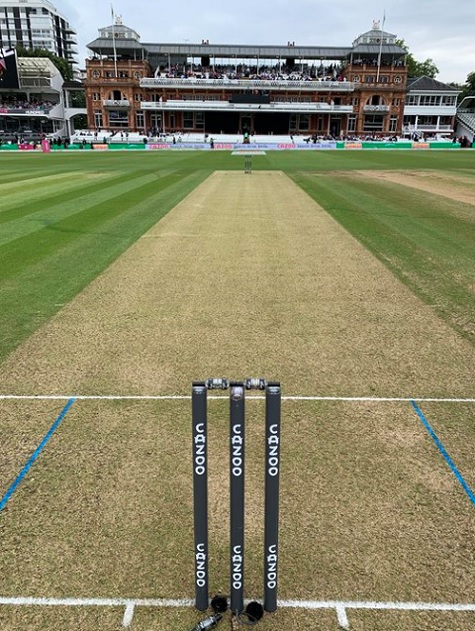
While on the subject of cricket, just a reminder that with less than a couple of weeks left of the current cricket season, September is generally a busy time for grounds professionals and volunteers who will be busy renovating their clubs facilities (see recent blog).
It is now time to plan and get set up for your end of season renovations. As mentioned in recent articles, the level of work completed this autumn will impact on how well the pitches play next season. A good thorough clean out, topdressing and overseeding of your pitches will encourage new growth and reset surface levels.
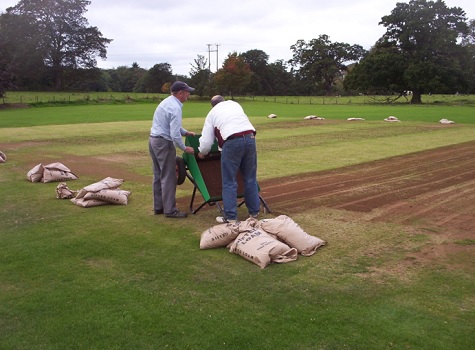
Try not to skimp on these works. The more you can do the better. Getting the work undertaken as early as you can, while soil and air temperatures are still in double figures, will help the new seed to germinate quickly. If you must wait until the end of the month, or worse are still trying to do it at the back end of October, the poorer the chances of getting the work achieved in favourable weather conditions.
Similarly, bowling clubs should also be getting on with their end of season renovations, with the aim to scarify, aerate, topdress and overseed their greens. Again, it is all about rectifying any underlying problems and thoroughly cleaning out any unwanted thatch layers.
Even if you carry out the work yourselves, there will be a cost for materials, loams, topdressing, seed and the hiring of machinery. It is important you invest appropriately to get the desired result.
Clubs need to recognise these annual renovation costs and ensure they can find the funds to properly see through these essential works.
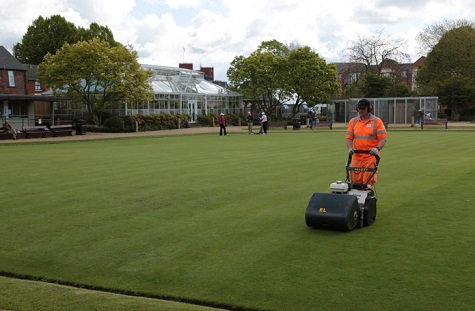
Braking down the costs
Last year I and several professional groundsmen assessed the costs of maintaining natural grass pitches (football, rugby, bowls and cricket) and were not surprised to discover the level of time and costs that are required to maintain grass sports facilities. You can read our findings in full here.
Football / Rugby
I based both rugby and football costs on a similar maintenance regime - essentially a weekly cutting programme during the growing season, using a compact tractor and roller mower; a feeding programme; aeration work; marking out, strimming, pre and post-match activities, harrowing, and a decent end of season renovation that includes overseeding, topdressing with 100 tonne of sand and an application of fertiliser.
In total the man hours for one person attributed to carrying out this work throughout a calendar year, equated to around 362 hours of manual work. A full end of season renovation cost would be in the region of £6,000 and allowing a further £2,000 for the cost of materials and servicing.
Bowls
As for bowls, undertaking the same formular, working out the hours invested in time to maintain a bowling green, cutting three times a week and undertaking other relevant work, feeding, scarifying, verticutting and end of season renovations we came to a figure of 258 hours with end of season renovations, material and servicing costs being £3,500.
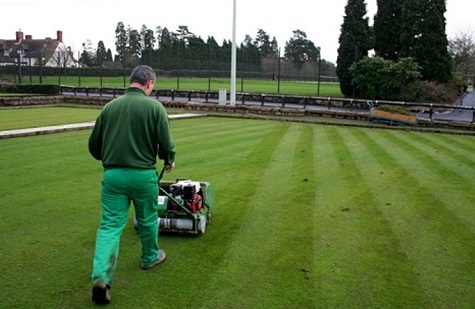
Therefore again, if you were to have a volunteer workforce and needed to cover the costs for machinery and materials you could be looking at a total annual cost of £3,500 per green.
However, if you must pay for the services of a paid greenkeeper / contractor to undertake the maintenance work at a low rate of £30 per hour, then the total annual labour maintenance cost would be 258 x £30 = £7,740.
Cricket
As for cricket, we come up with some surprising figures. We broke the work down into five key working areas - work completed on the square, outfield, auxiliary works, ten-day wicket prep and renovations during a typical calendar year.
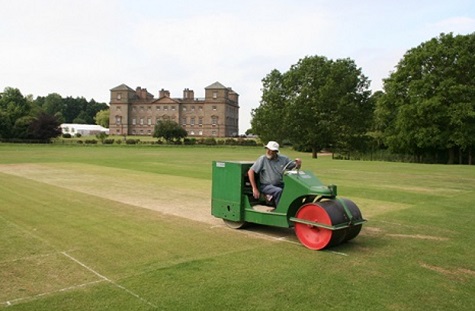
The following hours were attributed to each section:
- Square - this included pre-season rolling activities and maintaining square during the season 700 hours.
- Outfield - work associated with the outfield, mowing spiking feed etc 210 hours
- Auxiliary works - Moving covers, site screens, cutting hedges and other works 105 hours
- Ten-day preparation of wickets – preparing and repairing wickets 100 hours
- End of season Renovations – cut, scarify, aerate, seed and topdress with loam. 40 hours
Total hours incurred: 1155
Cost of materials: £3,000
As, you can see from the four sports assessed, there are a considerable number of hours required to maintain these facilities. Coupled with the cost of materials etc.
I firmly believe it is time sports clubs started keeping a record of the work they undertake and keep accurate records of the costs involved. Or more importantly find better ways to source the funds required to maintain their given sports facility.
As mentioned In previous articles, it is becoming increasingly difficult to recruit volunteers - and even in some cases paid professionals - to undertake the work at grass roots level sports clubs
 |
|
 |  |
'THANK A GREENKEEPER' DAY RETURNS
On 14 September
In our first WEB ONLY story BIGGA say they are joining other organisations across golf to offer a message of thanks to greenkeepers and sports turf professionals on Tuesday 14 September 2021.
ISEKI ANNOUNCE ROADSHOW
Across UK in September & October
In our next WEB ONLY story, in conjunction with their local dealers, Iseki UK & Ireland say they are excited to be heading out to meet existing and new customers in September and October this year.
RETIREMENT FOR ROBERT BAYLISS
After 42 years at Weymouth GC
Robert Bayliss has said goodbye to Weymouth Golf Club in Dorset after 42 years serving the James Braid-designed parkland course.
Robert Bayliss has said goodbye to Weymouth Golf Club in Dorset after 42 years serving the James Braid-designed parkland course.
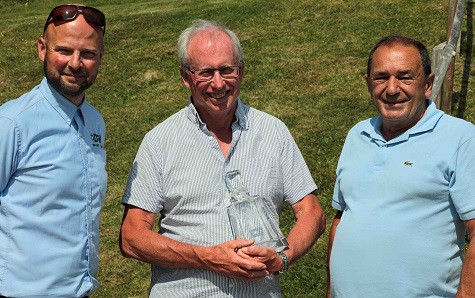
Robert Bayliss (centre) holding his Reesink/Toro decanter with Elliot Wellman of DGM (left) and retired Reesink Turfcare area manager John Pike
Now 65 years old, Robert originally came from a sports-ground maintenance and horticulture background, landing a post as head greenkeeper at the club in 1978 when he was only 22. Initially thinking of the position as he says, “another rung in the ladder”, he ended up enjoying his work so much he stayed until his retirement, over four decades later.
One of Robert’s biggest achievements while at Weymouth Golf Club has been his involvement in training and education, club accreditation and charity work, he says: “Training and education are paramount when it comes to staff improvement. In the early days, one of my priorities was to obtain funding for training and education from committees. Although challenging, once it became apparent that increased technical skills, as well as greater motivation and morale, resulted in an overall improvement on the work carried out on the course, getting support for these areas became a lot easier.
In Robert’s long-run career he’s experienced many advances to the greenkeeping profession, some of which he calls “remarkable”. He says: “The evolution of mechanisation and machinery is remarkable and has made the lives of greenkeepers everywhere a lot easier and safer, not to mention more productive. There’s now an open world of possibilities when it comes to the maintenance and design of turf, which simply wasn’t there when I started out.
“I sometimes relay to younger greenkeepers how many of the machines they take for granted today didn't exist when I started, and when they did, it was only a few prestigious clubs that could afford them. The rise of technology means now we all have the machinery we need to do the job properly.”
Toro is the brand that Robert says he has worked with from the very beginning. “Bringing new equipment from the United States, it completely revolutionised the greenkeeping world,” he says. “One machine that, without a doubt, made my daily routine so much better was the Toro Greensmaster 3 riding greensmower; it did so much to cut maintenance time on the course.”
With the club a Toro customer and considering Robert’s long-term relationship with local Toro dealer Devon Garden Machinery and his long-standing contribution to the greenkeeping profession, the news of Robert’s retirement was certainly a milestone to be marked.
John Pike, previous regional manager at Reesink Turfcare, who has also recently retired after 48 years in the turfcare industry, was happy to be involved, he says: “I was delighted to come out of my retirement for the special occasion of marking Rob’s retirement. I worked with Rob for many years as did Dennis Lumley, who worked at Devon Garden Machinery before his retirement, so we arranged a surprise lunch meeting for Rob. There, Elliot Wellman, who is Weymouth’s current contact at Devon Garden Machinery, and I presented Rob with a Reesink/Toro decanter, plus a nice bottle of malt to fill it!”
Robert calls himself “extremely fortunate” to have been surrounded with individuals who would end up becoming long-time friends, one of which is deputy Rob Mabb, a most-trusted work companion of 35 years and recently promoted to the course manager position at Weymouth upon Robert’s retirement, is one of them. A choice that Robert couldn’t be “more pleased with”.
 |  |
SCAG OWNER EXPANDS MANUFACTURING CAPABILITIES
Acquires Robbins Manufacturing Inc.
The owner of Scag Power Equipment has announced the purchase of Robbins Manufacturing, Inc, based in Fall River, Wisconsin, effective August 23, 2021.
The owner of Scag Power Equipment, Metalcraft of Mayville Inc, has announced the purchase of Robbins Manufacturing, Inc, based in Fall River, Wisconsin, effective August 23, 2021.
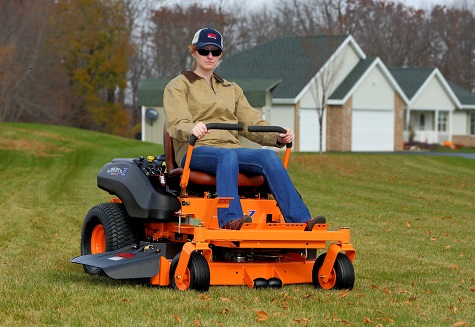
In an official statement Metalcraft said they will retain all of the more than 200 existing employees at the Fall River location. The company also has plans to double the headcount there over time. Additionally, they said, this acquisition does not impact the employment status for anyone in Metalcraft’s other facilities. The company say they will continue its hiring and growth strategies at all facilities.
According to company management, this new location offers Metalcraft a strong, complementary workforce in a plant that is very similar and in close proximity to the company’s existing operations. They say the former Robbins facility provides additional needed capacity to support their continued growth.
In addition, the manufacturer says the capabilities and processes gained through this acquisition will allow for further expansion of their product offerings under its Scag Power Equipment and Versatran truck brands.
Metalcraft plans to immediately move some of its existing work into the Fall River plant, as well as invest in upgrading the facility.
“We are pleased that we can put our family business of over 30 years in the hands of such a great company as Metalcraft,” said Robbins owner, Greg Robbins. “We are positive this will provide a strong future for the operation and its employees”
 |  |
BARENBRUG APPOINT TWO
Boosts its amenity team
Grass seed breeder and producer Barenbrug UK has appointed David Howells and Joshua Thomason.
Grass seed breeder and producer Barenbrug UK has boosted its amenity team with the appointment of David Howells and Joshua Thomason.
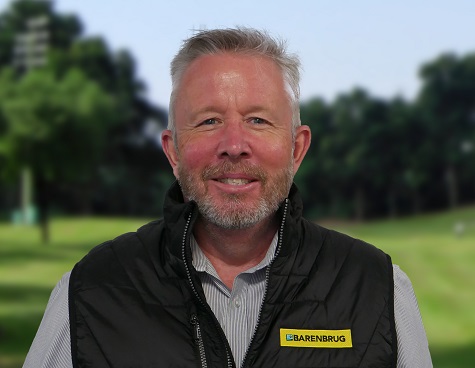
David Howells is regional sales manager responsible for the North of England and North Wales.
David began his career in the British Army, completing his greenkeeper training at Askham Bryan College and working as a greenkeeper and course manager at Harrogate and Shropshire Golf Clubs, including responsibility for the construction and grow-in of a 27-hole golf course, before moving into technical and sales support. He joins Barenbrug after his most recent role at Headland Amenity where he provided technical, sales and agronomic support to course managers and head groundsmen at golf courses, premier football venues and training grounds in the North of England.
David said, “Whether golf course, winter sports pitch or turf grower, I’m looking forward to meeting customers, helping them improving their sward composition and tackle disease, wear, or specific issues in particular locations. My invitation is to get in touch and see what Barenbrug can offer from both a professional technical advice and support perspective”.
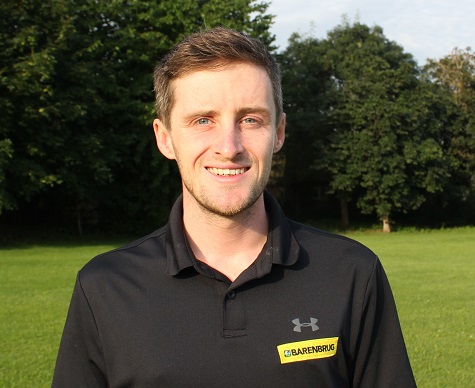
Joshua Thomason is regional sales manager covering South England and South Wales.
A recipient of the prestigious R&A Greenkeeping Scholarship and Myerscough College graduate, Joshua’s career has included course manager and greenkeeper roles, with major tournament experience at exclusive golf venues in the UK, Austria, USA and Australia including the new West London Links opening in 2023, Roehampton and Royal Wimbledon Golf Clubs. With significant international expertise in modern agronomic techniques, experience in differing climates and with warm and cool season grasses, he also looks forward to supporting greenkeeping teams to further improve their playing surfaces.
He comments, “I’m looking forward to creating long-lasting relationships that will, through use of Barenbrug products, enable end-users to create exemplary turfgrass surfaces that deliver superior performance while reducing inputs and enhancing the environment“.
 |  |
POTTERS POINT KEEPS PACE
With new tech from dealers Dublin Grass Machinery
The holiday and golf resort in County Wicklow has chosen to continue their 25 year relationship with John Deere when upgrading their existing golf and turf maintenance fleet.
Potters Point, the holiday and golf resort in County Wicklow, has chosen to continue their 25 year relationship with John Deere when upgrading their existing golf and turf maintenance fleet.
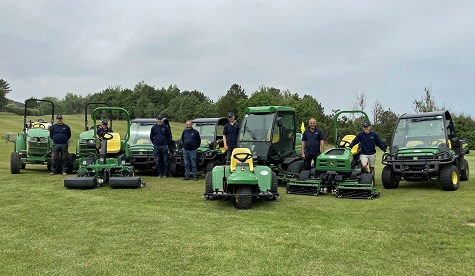
Golf and turf grounds staff at Potters Point holiday and golf resort with their new fleet of John Deere equipment.
Overlooking Brittas Bay on Ireland’s east coast, south of Dublin, Potters Point is an exclusive luxury mobile home park owned by the Stone family and was established in 1957. Guests who stay there have free access to the nine-hole parkland golf course extending to 40 acres that was developed in 1987.
When the existing John Deere equipment fleet was due to be updated, Potters Point manager Irene Lacey called on dealer Dublin Grass Machinery to supply the range of new machines. These include an 8700A PrecisionCut fairway mower, 2653B PrecisionCut utility triplex mower, 2550E hybrid electric triplex greens mower, 220SL walk-behind greens mower, two 3039R compact tractors and three HPX 815E Gator utility vehicles.
“We bought our first John Deere machines in 1997 and have used the brand ever since,” says Irene. “These new models have replaced older equipment, as we want to keep the fleet as fresh and new as possible and equipped with the latest technology, and we are very pleased with them.
“There is great security in having new equipment and therefore no worries about breakdowns. The machines are now all working very efficiently both on the course and in the holiday park.”
The local John Deere golf and turf dealer, Dublin Grass Machinery (DGM), was established in 1981 and is now led by managing director Robert Mitchell. Having enjoyed such a long-term relationship with the dealership, Potters Point relies on DGM for its essential backup service.
“Our equipment has always been fully serviced by Dublin Grass Machinery, and we have found the team there over the years to be very efficient and reliable,” says Irene. “Their backup service is second to none - getting anything repaired or replaced is always done in a very timely manner. DGM has proved to be a very good partner to have in this business.”
Potters Point say they have plans to invest in additional John Deere equipment, particularly to replace a larger tractor that has been working at the resort since the first machines were ordered in 1997.
“Having enjoyed such a long relationship with Potters Point, we were naturally very pleased to be asked to supply them with this new machinery package,” adds Robert Mitchell. “We appreciate their business and will continue to provide Irene and head greenkeeper Eamonn Delaney and his team with first class after-sales support.”
 |  |
MERLO APPOINT NEW EASTERN ENGLAND DEALER
Collings Brothers of Abbotsely Ltd
Dealership will be will be representing the full Merlo agricultural range across the counties of Cambridgeshire, Bedfordshire, Northamptonshire.
Merlo UK has extended its network of agricultural dealers in the East of England by appointing Collings Brothers of Abbotsely Ltd.

L-R: Jason Weston, Collings Brothers managing director; Vincent Lynch, Collings Brothers financial director; Ben Wood, Collings Brothers sales director;Charlie Lane, MUK network development manager; Jim Chapman, MUK Regional sales manager N&E
Collings Brothers will be representing the full Merlo agricultural range across the counties of Cambridgeshire, Bedfordshire, Northamptonshire.
“Founded in 1930 Collings Brothers have established over many decades an envious reputation for customer service,” said Owen Buttle, national sales manager at Merlo UK.
“We are extremely pleased to welcome them to the nationwide network of Merlo agricultural dealers”.
Operating from two locations at Abbotsley in Cambridgeshire and Brigstock in Northamptonshire, the manufacturer says comprehensive technical, parts and product training is already underway for the team at Collings Brothers. A comprehensive stock of genuine Merlo spare parts has also been established across both depots.
Collings Brothers managing director, Jason Weston, added, “Collings Brothers have a long standing relationship with Merlo and look forward to supporting existing and new customers. Collings Brothers pride ourselves on the back up we provide from our Abbotsley and Brigstock depots. Our priority to ensure we give customers an excellent service in aftersales and sales.
"Our sales team look forward to offering this extensive range of handlers and are looking forward to getting out into the field demonstrating.”
 |
|
 |  |
ADVERTISE YOUR JOBS HERE
Amazing success rates!
Advertise your recruitment needs on TurfPro Weekly Briefing and reach our targeted audience of recipients every week.
Contact Nikki Harrison for details - 01491 837117
|
 |  |
EDITOR'S BLOG ARCHIVE
Catch up with Laurence Gale's recent blogs
Want to catch up with one of editor Laurence Gale's blogs? Here is the place to do so.
TURFPRO FEATURE ARCHIVE
Find our previous features here
If you want to catch up with any of TurfPro's previous features, here is the place to do so.
80 YEARS YOUNG
Charleville Golf Club
AN UPLIFTING EXPERIENCE
Bunclody Golf & Fishing Club
GETTING BACK TOGETHER
Albeit gradually . .
GO WEST
Inishturk GAA pitch – one of the most westerly sportspitches in Europe
WORKING ON A TIGHT BUDGET
Nenagh Golf Club
ON A MISSION
Wrekin Golf Club aiming to enrich wildlife and fauna
WILD AND WONDERFUL
Design By Nature
LEARNING HOW TO SURVIVE
Abbey Par 3
TACKLING OBESITY
Vital that schools can provide sport
A LIFETIME OF LEARNING
Vital for turf professionals
CELEBRATING 125 YEARS
Tullamore Golf Club
UNIVERSITY CHALLENGES
At Trinity College Dublin
BLENDING THE OLD WITH THE NEW
Bray Golf Club
A WELL POLISHED COURSE!
Ierne Social And Sports Club
IDENTIFYING THE TRUE VALUES
Of grounds maintenance
THE INDUSTRY WILL CHANGE & ADAPT
But it will survive
WIRRAL GOLF COURSES SAVED
Renewed hope and optimism for the future
GREEN SPACE CONTRIBUTION TO WELLBEING IS UNDERVALUED
Parks invisible on national agenda
A SHINING LIGHT IN IRELAND'S SUNNY SOUTHEAST
Wexford Golf Club
GREEN SPACES DO NOT LOOK AFTER THEMSELVES!
Keith Kent says we must invest in people
WE SHOULD TELL THE WORLD ABOUT THE UK INDUSTRY
Right time for all sides to come together
SOIL LIFE IS PRECIOUS
Good-quality soil can help save the planet
MORE THAN JUST CUTTING GRASS
Encouraging the next generation
A BUZZ FROM DOING THE JOB
Wide experience of the turf grass industry
PAYING THEIR WAY
Low wages is the bane of the industry
AMENITY MANAGEMENT IMPACTS US ALL
Professor John Moverley
CARING FOR PARKS OF ALL TYPES
Mary Worrall
TOP FIVE FRUSTRATIONS FOR CRICKET GROUNDSMEN
What causes you the most frustration in your role?
PROFESSIONALS AT THE CUTTING EDGE
Vic Demain and Phil Sharples
BOWLS CLUBS IN PERIL
A sad decline
A VERY SPECIAL INDUSTRY
Loz looks back
SNEAK PEAK AT A ROBOTIC "GAME CHANGER"
Commercial model capable of covering 50,000 m2 teased
HALESOWEN PICK A BIG ROBOT UP FRONT
Invest in mowers
COMPRESSED AERATION
The new way
PARKS MATTER MORE THAN EVER
Recent sector developments
ON TEST
STIHL blowers
THREE CORE VALUES TO SHAPE OUR INDUSTRY
Real concerns for the future
ENGLAND'S GREEN SPACE GAP
A split along racial lines
ON TEST
EGO STX3800 strimmer with RTX2300 Rotocut head
A SECTOR FACING IMPORTANT TIMES
Review of the National Action Plan
PARKS MATTER
The role of public parks in the recovery: a discussion paper
A UNIQUE SPORTING VENUE
Wormsley private estate
A BTME OUTDOORS?
A good bet for the industry
PARKS NEED APPROPRIATE POLITICAL REPRESENTATION
Q&A with Philippa Reece, Parks and Foreshore Manager at Adur and Worthing Council
CRICKET LOAM
What does it mean?
A HERCULEAN EFFORT TO GET PARKS BACK TO NORMAL
Q&A with Chris Worman, Rugby Borough Council’s parks and ground manager
ON TEST
STIHL battery products
TURFGRASS STRESS MANAGEMENT
Reactive Oxygen Species (ROS) and antioxidants during biotic and abiotic stress in turfgrass plants
AUTUMN DISEASE MANAGEMENT
The coming months are going to prove very difficult
THE ABUSE OF PARKS . .
Is the abuse of society
WHY PARKS MATTER?
A statement from the Parks Management Forum to the Prime Minister
THE 21st CENTURY PARKS MANAGER
Innovative, creative and entrepreneurial
EAT, SLEEP, CUT, REPEAT!
Cricket under covid
TIME FOR A SINGLE SHOW?
Debate brought back into focus
A CHALLENGING TWO MONTHS
Running golf design projects from home
PRESSURE SITUATION
Cementing the reputation
A CLUB TO BE PROUD OF
10 years at the helm of Olton GC
GAME CHANGERS IN TURFCARE
The day the Lord's outfield reconstruction proved its worth
THE ESSENCE OF ESSENTIAL
Finding a sensible way forward on defining "essential maintenance"
THAT WAS THE YEAR THAT WAS
2001
HOW TO LOOK AFTER A GOLF COURSE WITH NO GOLFERS
Fundamental to the survival of almost all courses, if not of the game itself
RAIN STOPPED PLAY WOULD BE WELCOME
. . along with ‘lunch is being taken early’
PHYSICAL CONTROL OF TURFGRASS PESTS
An urgent problem
A DIVERSE & ENTERTAINING WEEK
Successful BTME 2020
INTEGRATED PEST CONTROL
Opportunity to embrace new methods
ENVILLE ON THE UP
Major investments taking place
GREEN FLAG AWARDS 2019
A great success
U.S PROFESSIONAL EQUIPMENT SHOW EXCELS
Buoyant GIE+EXPO
LEGACY OF THE SOLHEIM CUP
At Gleneagles
A DAY OUT WITH THE LADIES
Behind the scenes at the Solheim Cup
COVENTRY UNIVERSITY'S EDIBLE GARDEN SUCCESS
2006 - present
HAIL THE GRASS MASTERS!
Boorish media comments about pitch quality are wide of the mark
CONTRACTOR SEES MULTI-DISCIPLINE SUCCESS
360 Ground Care serving professional facilities
BUSY TIMES
Judging the Green Flag Awards
TAKING AN INTEGRATED APPROACH
What does it all mean in managing turf surfaces?
UNDER PRESSURE
Dry weather conditions continue to keep turf managers focused on moisture management
EDDIE SEAWARD
Death of Wimbledon’s influential grounds manager
MAJOR NEW IRRIGATION PROJECT
At Top 100 classic Berkhamsted Golf Club
NEW HORIZONS FOR THE HATTERS
Investment paying off at Kenilworth Road
ELIZABETHAN RESTORATION
At Castle Bromwich Hall Gardens
WHAT IS BIOPHILIA?
The vital impact of parks and green spaces on health and well-being
WORM CONTROL
Without carbendazim
THE TRUE COST OF PETROL
Battery-powered outdoor power tools are now turning the heads of professionals
SANDS OF TIME
Sand-based pitches are now the norm in professional sports
WHY DO WE DO THE RIGHT THING?
We must maintain industry standards
CHASING GRASS PERFECTION?
11 things you need to know . . .
MAINTAINING STANDARDS
Q&A with BASIS ceo, Stephen Jacobs
STRI RESEARCH DAY 2018
Hosted at research trial grounds in Bingley
THE MECHANIC
Leicester City FC invest in new role
LORD'S 'GRASS-GUVNOR' TO RETIRE
Mick Hunt bows out after 49 years
HOLLOW CORING & DEEP SCARIFICATION
Is it really necessary?
 |
|
 |  |
 |  |
 |  |
 |  |
FROM ACROSS THE IRISH SEA
|
A GOLF COURSE IN THE GARDEN OF IRELAND
Woodenbridge GC
by Alan Mahon, TurfPro's Ireland editor (Words & Pictures)

Once described as Ireland’s Augusta, Woodenbridge Golf Club in County Wicklow features rivers on 10 of its holes and is looked after by head greenkeeper Michael Doren and his team.
For this edition of TurfPro I travelled to County Wicklow (a county known as The Garden of Ireland) to a beautiful golf course that is nestled in a tree lined valley with two rivers flowing in and around the course.
This course is Woodenbridge and it was once described as Ireland’s Augusta. It is indeed a beautiful course. It brings back fond memories to me as I used to play rounds of golf there when I was involved with the Golf Course Superintendents Association of Ireland. Back in those days it was usually early November when I would play the course with my greenkeeping coleagues. At that time of the year it was spectacular as the trees, which included oak, silver birch and mountain ash, displayed their vivid autumn colours. We would then retreat back to the clubhouse for the meal and prizegiving. What wonderful memories.
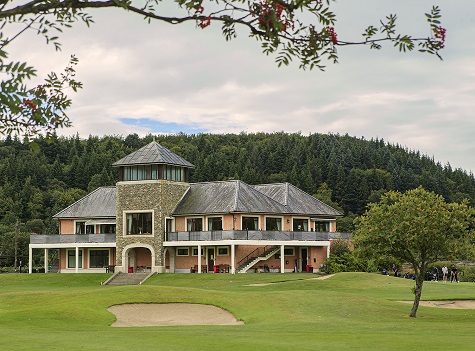
The clubhouse enjoys panoramic views across much of the course
Woodenbridge is a very old club. It was established in 1884 as a nine hole course and is layed out on the flood planes of the rivers Aughrim and Avoca. The old nine holes were known as the links. It remained a nine-hole course until 1994 when the late Paddy Merrigan was commissioned to design the additional nine-hole layout and extend Woodenbridge to a Par 71, 18-hole course. The new holes were blended seamlessly and agelessly into the fabled original nine holes. The new nine holes were officially opened on the 3rd of June 1995. Merrigan subsequently upgraded the old nine holes in a most sensitive manner, keeping with the essence of this historic and beautiful place. There is also a driving range and practice green, which are located beside the car park. An interesting fact is that the first head greenkeeper back in 1884 was Paddy Doran, who is the great grandfather of the present head greenkeeper, Michael Doran.
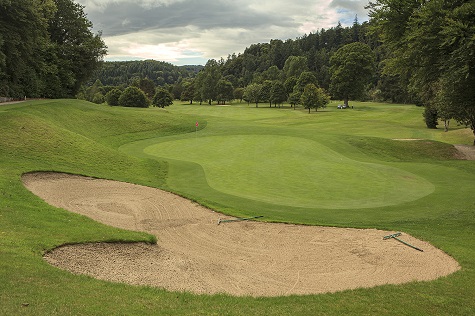
The par three 4th hole
The club has approximately 650 members including Lena Tice, who is a former international cricket and current international hockey player and was part of the Irish hockey Olympic team in this year’s Olympic Games in Tokyo. To get the clubhouse and golf course you have to park your car in the car park. You then walk across the Dublin/Wexford railway line before walking on the steel bridge that crosses the River Avoca. When you do this you get to see the impressive clubhouse which gives you wonderful views across the course.
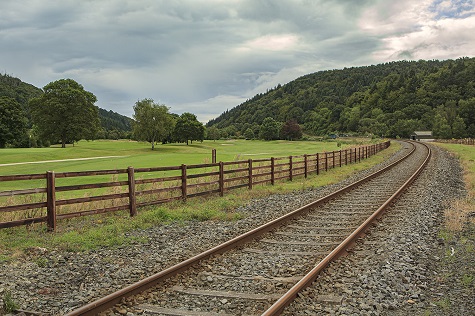
Before you get to the clubhouse you have to cross the railway line by foot
I met head greenkeeper Michael Doran at the maintenance facilty where he was setting the blades of one of the surrounds mowers (Michael is also the mechanic at Woodenbridge). We had a great chat together, catching up on old times. Michael has been working at Woodenbridge for twenty one years. He originally worked in the nearby copper mines, as his father did before him. It was a tough life and he soon left to work for a local agricultural contractor which, in a strange way, opened the door for him to work at Woodenbridge golf club. “I used do a lot of spraying for farmers and I would sometimes do some spraying for the club. In 2000 I decided to change jobs and started working at Woodenbridge as a greenkeeper”, said Michael. He became Head Greenkeeper in 2010.
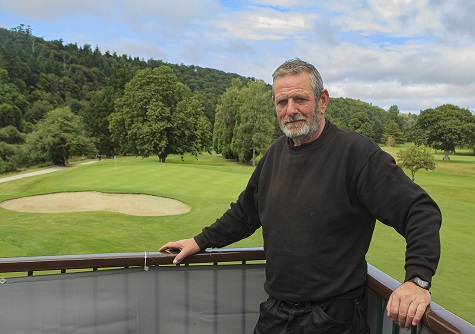
Head greenkeeper Michael Doran. His great grandfather was the club’s first head greenkeeper back in 1884
Michael is a practical man and has a great sense of where he works. Even though he has no formal qualifications, his knowledge of the land is immense and it is put to good use at Woodenbridge. “Being qualified in your profession has advantages but when it comes to greenkeeping you need to know about the soil under your feet. That’s something you don’t learn in college”, said Michael. There are five full time staff looking after the course. No seasonal workers are taken on.
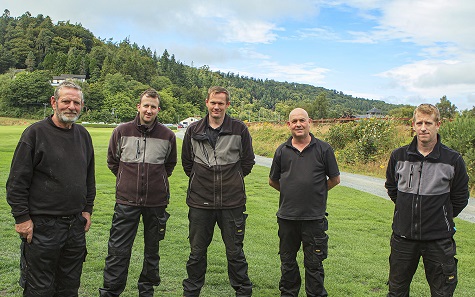
The greenkeeping staff from left: Michael Doran, Paddy Delaney, Gavin Short, Chris Doyle, Michael O’Toole
I got the use of one of the golf buggies where I was able to wander around the course with my camera, visiting the green where I made that twenty foot putt and the tee box where I drove three consecutive golf balls into the River Avoca. It was so difficult to pick specific locations to photograph as all the holes throughout the course were beautiful with the greens in great condition.
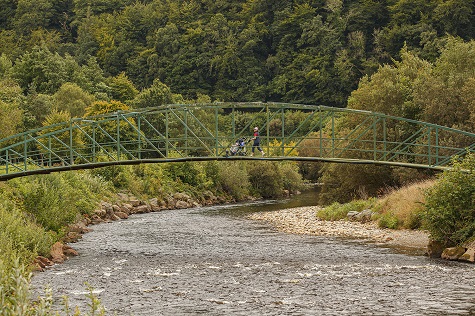
One of the bridge crossings over the River Avoca, a river that has consumed many golf balls over the years
The floods
The Rivers Aughrim and Avoca are an integral part of the course. The river Aughrim enters the Avoca at the 8th hole. The rivers feature on no fewer than ten of the holes, each providing unique challenges for players of all handicaps. However, river levels can rise, especially after heavy rain and, on at least four occasions (1965, 1986, 2001, 2010), the rivers burst their banks. The last such event, in 2010, caused a lot of damage. Two greens, the 8th and 15th, were washed away and had to be relocated and rebuilt; twenty five bunkers had to be rebuilt; large trees that were washed down from upstream were deposited onto the course; silt and gravel from the riverbed had been deposited on six fairways; the irrigation pipework damaged and a lot more.
Michael told me that the water levels were 2ft high in the maintenance facilty, submerging all the mowers. “We had to bring our machines up to the old railway station house, which is located beside the car park, to save them from further damage”, said Michael. In the 2010 floods up to one hundred members of the club volunteered to help with the clean up. Nearby Blainroe Golf Club even offered two of its greenkeeping staff to help as well. With the recent warnings on climate change, the threat of future floods is never too far away. The club is well prepared for such eventualities.

The flood damage from January 2010
Maintenance
Despite the course being built on a floodplain, the land is very well drained. You don’t have to dig down too deep to find gravel underneath. All the greens are sand based and built to USGA specifications.
The fairways are topdressed every spring, while the greens are sanded quite regularly throughout the growing season (the club got delivery of a new greens topdresser last June). Getting the sand delivered to the course is a challenge – for the lorry driver. Because the articulated vehicle cannot cross the railway line it is diverted to the other side of the course where it has to drive along a twisty laneway for several miles before reaching the course. The sand is dumped at two locations, making it easier for transporting around the course.
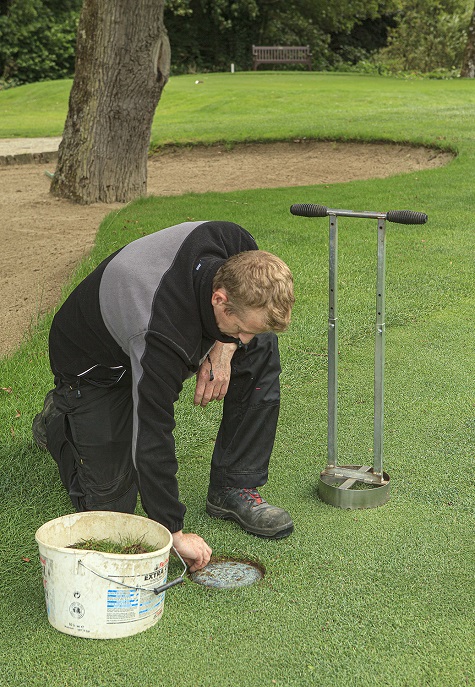
Greenkeeper Michael O’Toole edges one of the irrigation sprinkler heads
Every January the greens are verti drained. They are hollow cored in the spring and autumn, during which time they are overseeded with ‘Shark’ creeping bentgrass. Michael applies a granular fertiliser to the greens in spring and then uses liquid feed every 10 days during the growing season. He micro tines the greens every month. The greens and tees are supplied with an automatic irrigation system.
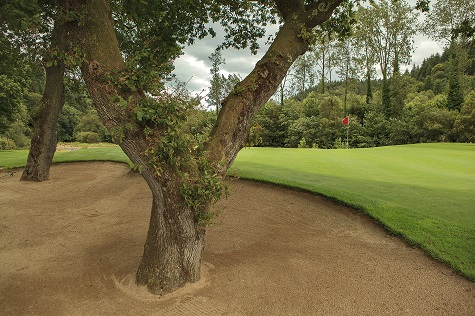
Two oak trees in the greenside bunker of the 14th green
Many of the trees are as old, if not older, than the club itself. There is a stone post that commemorates a speech given by Irish MP John Redmond, under a nearby oak tree in 1914, encouraging the Wicklow Sections of the Irish Volunteers to join the British forces to fight in World War I. Having so many trees on the course brings its own challenges with leaves having to be gathered up from autumn to early winter. Falling branches are also a risk so the older trees need to be regularly monitered for safety. But all this extra work is worth it as the trees add a wonderful visual aspect to the course.
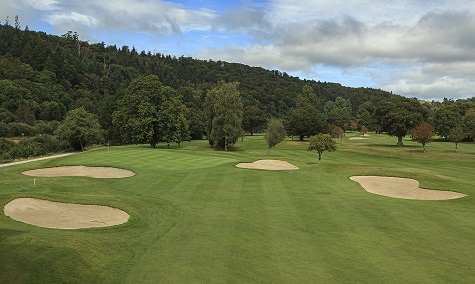
The view of the 18th green from the balcony of the clubhouse
It was a pleasure to have revisited Woodenbridge Golf Club. I’m sure Paddy Doran would be proud and impressed with how his great grandson, Michael, along with Woodenbridge’s loyal greenkeeping staff, have maintained the course.
 |
|
|
|